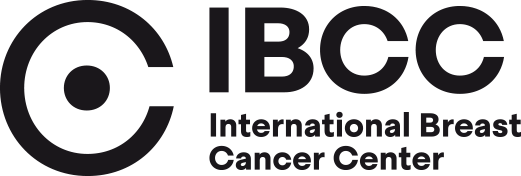The life plans of women of childbearing age who are diagnosed with breast cancer may be altered by this situation. On World Fertility Day, Dr. Laia Garrigós, oncologist at the International Breast Cancer Center (IBCC), discusses the solutions that science offers so that breast cancer patients can fulfill their dreams of being mothers.
At present, when a young woman is diagnosed with breast cancer, it is vitally important to inform her about the changes that may affect her reproductive capacity and offer reproductive counselling in conjunction with a gynaecologist who is a fertility expert.
In recent years, early diagnosis and advances in cancer treatments have dramatically improved the prognosis of patients with breast cancer, reaching an overall survival rate of more than 85%. The increase in the number of long-term survivors, as well as the growing incidence of breast cancer diagnosis in women under the age of 40, means that many women may not have fulfilled their reproductive wishes at the time of diagnosis and may be considering the possibility of becoming mothers once their cancer treatment has been completed. Around 25% of women diagnosed with breast cancer are premenopausal.
We know that chemotherapy treatments given for breast cancer can negatively affect fertility and lead to early ovarian failure. Fertility-related side effects depend on the chemotherapy regimen given and the patient’s age. Treatment with tamoxifen has a low risk of ovarian failure, which also depends on age.
There is scientific evidence that pregnancy does not increase the risk of breast cancer recurrence after appropriate treatments have been completed. The recommended time from the end of treatment until a patient can become pregnant depends on the type of tumour and its risk of recurrence, and ranges between approximately two and five years.
In daily clinical practice we encounter different situations that require different approaches. Patients undergoing cancer treatment (chemotherapy, hormone therapy, antibodies etc.) should not become pregnant due to the problems that these treatments can cause both the foetus and the mother. It is important, when introducing the patient to the possibility of preserving fertility, to make it clear that priority should be given to oncological treatment.
Fertility preservation techniques
At this time, there are various techniques to preserve fertility in breast cancer patients, the main ones being embryo cryopreservation, oocyte cryopreservation, ovarian cortex cryopreservation, and administration of LHRH analogues during chemotherapy. Numerous studies support the safety of these techniques in breast cancer patients, with varying success rates.
– Cryopreservation of oocytes for subsequent in vitro fertilization (IVF) is the most commonly used technique to preserve fertility in women with breast cancer. It requires hormonal ovarian stimulation, extraction of oocytes and their subsequent vitrification (ultra-rapid freezing, which prevents the formation of ice that could damage the oocytes), to preserve them until after treatment. Currently, ovarian stimulation and subsequent extraction is performed within a maximum of two to three weeks in order to delay the start of cancer treatment as little as possible.
– Cryopreservation of embryos is the technique which currently has the highest probability of achieving pregnancy, but it has the limitation that it requires the woman to have a partner or to resort to a sperm donation at the time of diagnosis.
– Cryopreservation of the ovarian cortex consists of the extraction of ovarian tissue before administering oncological treatment, and subsequent reimplantation once it has been completed, so that the patient can recover fertility and have a natural pregnancy. There is less experience with this technique and the probability of pregnancy is lower.
– Treatment with LHRH analogues during chemotherapy: Patients who do not have luminal tumours (with negative hormone receptors), and who therefore will not receive complementary hormone therapy, can receive treatment with LHRH analogues (monthly injections) during chemotherapy. This strategy has shown, in some studies, a lower percentage of ovarian failure with maintenance/recovery of menstruation and a higher probability of spontaneous pregnancy.
